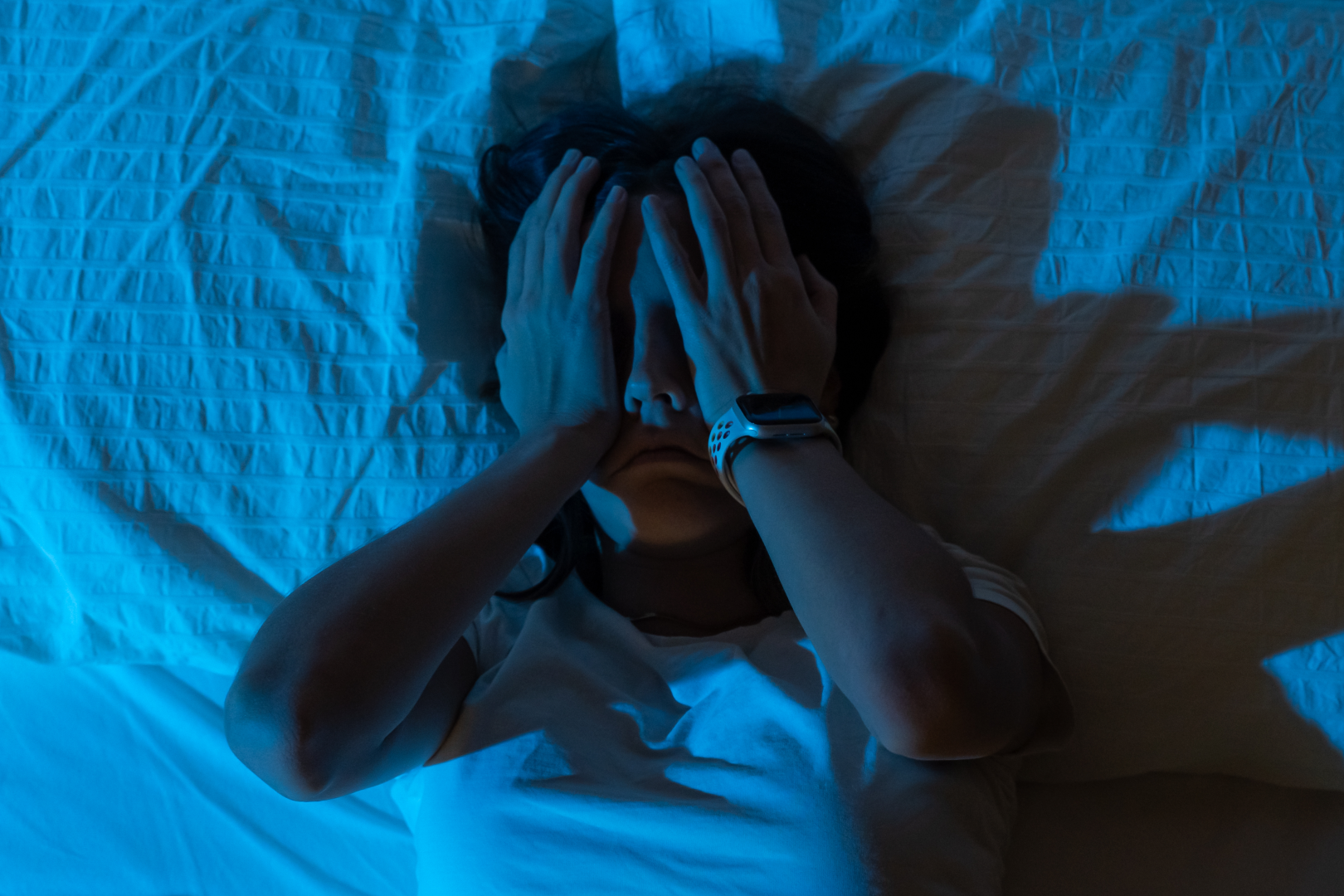If you have ever suffered from depression, or you know someone who has, then you’ve probably connected the dots between depression and fatigue.
People who are depressed commonly suffer from tiredness. If the depression is short and temporary, then the fatigue may pass quickly on its own. However, if the depression is serious or chronic, it may be accompanied by a constant feeling of lethargy and tiredness that makes day-to-day life very challenging.
What’s more, fatigue can worsen the symptoms of depression. That’s why it is so important to address this tiredness as part of an overall strategy to get out of the depression loop.
Let’s start by exploring, why depressed people sleep so much. Here are some of the reasons:
Sleep quality is poor
People who have depression often find that they don’t sleep long enough or soundly enough, making them feel tired and lethargic during the day. Depression may alter the neurochemical balance in the brain, especially the relaxing and sleep-regulating effects of serotonin and melatonin.
This can cause sleep apnea and other disturbed sleep patterns. The negative thoughts and ruminations that often plague people with depression can lead to increased levels of cortisol, the stress hormone, making it harder to relax and let go of sleep.
Does depression make you sleepy, or perhaps the opposite? Ironically, some people with depression sleep too much. While you might think that sleeping a lot will fix fatigue, this is not true. Oversleeping is also a problem and can make you more sluggish and lacking in energy.
Stress and anxiety
Anxiety and depression often go hand in hand. Studies estimate that around 60% of people suffer from both at the same time. Anxiety and depression may feed off each other in a loop, worsening the symptoms of each. For example, depression often brings a sense of hopelessness and helplessness, making it harder to do daily tasks, and resulting in increased stress and emotional burdens.
The inability to derive pleasure from activities previously enjoyed makes stress even worse. This emotional strain triggers the body's stress response, creating a chronic state of “fight or flight” and the range of physical and emotional symptoms that come with it.
Other symptoms of depression, such as negative self-perception and pervasive pessimism, are a breeding ground for anxiety. Anxious thoughts can revolve around the fear of never escaping depression, social isolation, or uncertainty about the future. Rumination about all these fears heightens stress and just makes anxiety worse.
Medication side effects
There are several types of medications for treating depression, the most common being Selective Serotonin Reuptake Inhibitors (SSRIs). Many people with depression choose to take these antidepressants, which work by altering the neurochemical levels in the brain to relieve depressive symptoms.
However, antidepressants can come with side effects. These range from mild to severe, and include nausea, weight changes, sexual dysfunction, jitteriness, and more.
Some people find that antidepressants cause insomnia and drowsiness, reducing energy, focus, and alertness so daily functioning becomes more difficult. This contributes further to fatigue, making it more difficult to heal from depression.
Drug and alcohol use
The difficult feelings that come with depression can drive some people to self-medicate with drugs and/or alcohol. Half of the people with a substance use disorder also have a mental illness like depression.
Drugs and alcohol are stimulants, providing a rapid feeling of release from the sadness and lethargy of depression. However, once this initial effect wears off, there is a depressive influence on the body, leading to a sharp drop in mood and a deep tiredness.
This creates a vicious cycle: the person increases their intake of drugs or alcohol to stave off feelings of depression, leading to more fatigue and worsening the symptoms of depression in the long run.
Lack of exercise
People with depression tend to lack energy and motivation. This often leads to a more sedentary lifestyle (ie. “couch potato”), which increases feelings of fatigue and makes depression worse.
Physical inactivity causes sluggishness, driving people to seek an energy boost from food, causing them to overeat and develop unhealthy eating habits. This can lead to weight-related health conditions, like obesity and chronic pain, which also come with increased tiredness.
How to Fight Fatigue if You Have Depression
If you often feel tired as a result of depression, there are techniques you can use to fight fatigue and increase energy. These involve taking practical steps, such as improving diet and increasing exercise, and self-care techniques that work on the body-mind connection to ease tiredness. Here are six ways to reduce depression and accompanying fatigue:
Eat healthy
A healthy diet can go a long way to alleviating the tiredness associated with depression. Nutrient-rich foods, such as whole grains, vegetables, lean meats, poultry, and omega-rich fish, nuts, and fruits, provide the body with essential vitamins, minerals, and antioxidants, which boost energy levels, regulate hormones and help stabilize mood.
It is really important to avoid sugar and processed carbohydrates, as these trigger rapid fluctuations in blood sugar that cause tiredness. Also, adequate intake of B vitamins, particularly B6 and B12, supports energy metabolism and reduces lethargy. Fueling the body with healthy foods is very important to prevent eating disorders and balance energy levels and mood, helping to ease depression and fatigue.
Stick to a bedtime routine
Sleep hygiene is a proven path to regular, healthy sleep, and for people with depression and fatigue, it is essential. For instance, going to bed at the same time every night is key to preventing sleep disorders. Why? Because it supports the body’s natural circadian rhythm, which regulates the brain’s signals for sleep and wakefulness.
This makes it easier to fall and stay asleep when tired, and wake up when the body is ready.
Some things you can do to create a good bedtime routine and reduce depression and fatigue include:
- Having a warm bath before bed
- Stopping to eat at least 2 hours before going to bed
- No coffee, alcohol, or other stimulants for 6 to 8 hours before bedtime
- Turn off phones, laptops, and screens for an hour before bed
- Do relaxation exercises for 10 minutes before turning off the light
Take up a new hobby
Many people with depression experience listlessness or apathy, and they struggle to feel interested or excited about their daily lives. This may be due to reduced levels of dopamine and endorphins in the bloodstream, which leads to lethargy and tiredness.
Taking up a new hobby is a great way to become immersed in a creative and enjoyable behavior, stimulating the release of feel-good hormones and enhancing mood and energy. Hobbies offer a sense of purpose, accomplishment, and diversion from negative thought patterns.
The sense of mastery that comes with learning a new skill can boost self-esteem and motivation, countering feelings of tiredness. Also, hobbies that encourage social interaction and engagement help reduce isolation, boost mental health, and break the cycle of fatigue.
Practice self-care
There are lots of ways that people with depression can practice self-care to uplift their mood and increase energy. Focusing on creative expression through painting, writing, or playing a musical instrument can channel emotions, provide a sense of satisfaction, and help reduce tiredness.
Spending time in nature is an excellent way to boost the spirit and increase the life force in the body. Walk barefoot in the grass to reconnect with the earth and feel a sense of grounding. Fresh air and sunlight are great antidotes to fatigue as they stimulate the brain while providing a calming influence.
Aromatherapy with energizing oils, such as eucalyptus, lemon, and rosemary, is an excellent self-care technique to promote alertness and reduce fatigue.
Another self-care treatment that can be done at home is biofeedback. Biofeedback is a body-mind technique that helps you identify and understand the body’s physiological responses in real-time.
With a personal biofeedback device such as Reflect, you can track things like heart rate, breathing rate, and galvanic sweat response, and explore how to calm the body’s reactions in response to guided relaxation exercises. In this way, you can pinpoint stressful triggers that may contribute to depression fatigue, and learn how to control them better.
Avoid alcohol
While alcohol may provide temporary relief, it ultimately makes depression symptoms worse and disrupts sleep patterns, leading to tiredness. Choosing to avoid alcohol or limit your intake is important to stabilize your mood and improve sleep quality, which will help manage depression-related fatigue.
For people with a major depressive disorder such as bipolar disorder, it is wise to abstain from alcohol completely as part of your plan to combat depression and lethargy.
Increase exercise, step by step
For someone with depression and fatigue, or depression-related chronic fatigue syndrome, regular exercise will have significant benefits. Starting with small, gentle activities like short walks or stretching allows the body to gradually adapt, preventing tiredness and depression from overwhelming your motivation.
Even small bouts of exercise improve blood circulation to the body and brain, promoting mental clarity and reducing feelings of tiredness. Try to start with just 10 minutes a day, morning and evening, and build up slowly from there. As your physical strength and endurance improve over time, you’ll also experience a positive impact on mood that will ease fatigue caused by depression.
Say goodbye to depression fatigue
If you’re wondering “Does depression make you tired?”, the answer is yes. Depression is closely tied to periods of lethargy and sleepiness, or a more constant tiredness and chronic fatigue.
For people who suffer from low-energy depression, taking active steps to get out of the fatigue loop and build stamina and energy is essential – not just to reduce the symptoms of depression but also to boost mood and overall well-being. This is the start of a more hopeful, fulfilling, and fatigue-free life.






